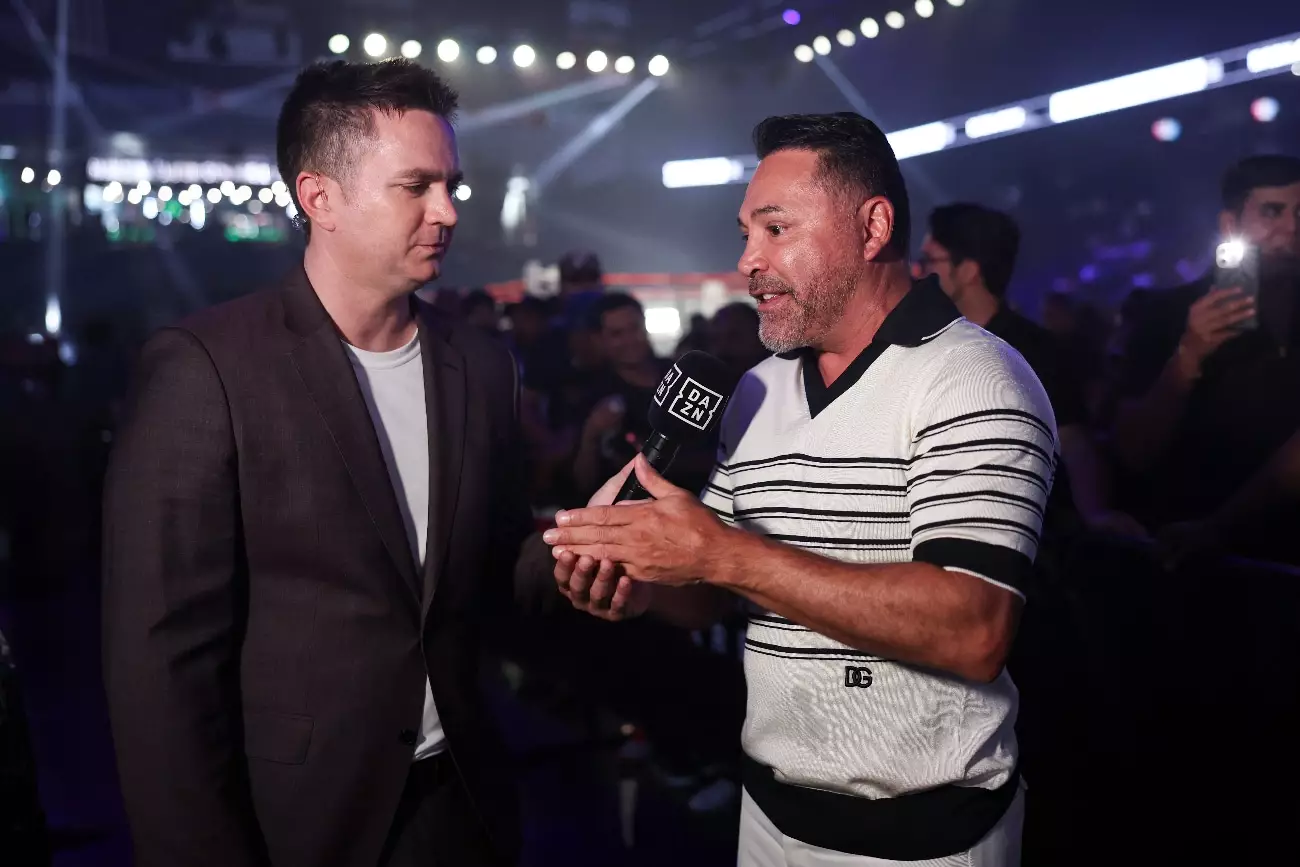Oscar De La Hoya, a prominent figure in the boxing world, has stirred up controversy once again with his pointed comments regarding the potential matchup between Canelo Alvarez and Chris Eubank Jr. The exchange highlights the ongoing rivalries not just among fighters but also among promoters, fans, and different boxing cultures. While De La Hoya’s remarks were aimed at British fans, they also expose deeper issues within the sport, such as perception, legacy, and the qualifications of fighters in the heavyweight division.
Critique of Eubank Jr.’s Credentials
Decompiler of Canelo’s potential matchup, De La Hoya’s skepticism towards Eubank Jr. is rooted in the fighter’s lack of proven success at the super middleweight level. Having a record of 34 wins with 25 knockouts might seem impressive on paper, but a closer analysis reveals that many of those victories were against less formidable opponents. Eubank’s recent performance—a seventh-round knockout win over journeyman Kamil Szeremeta—indicates he is still finding his footing after a lengthy break from fighting. De La Hoya’s assertion that Eubank Jr. is not a worthy challenger for Alvarez’s titles seems justified when considering the opponents Eubank has faced throughout his career.
What truly underpins De La Hoya’s tirade is his yearning for Canelo Alvarez to engage with elite talent. The promoters have diverse opinions on what defines a worthy opponent, and De La Hoya insists that Canelo should face fighters like David Benavidez, Artur Beterbiev, or Dmitry Bivol. This longing for high-stakes bouts stems from a desire to elevate the sport’s prestige and deliver fights that offer genuine competitive intrigue. In a sense, De La Hoya is championing higher standards in boxing and advocating for matchups that could potentially challenge Alvarez’s supremacy.
Cultural Differences in Fight Promotions
De La Hoya’s remarks also reflect broader cultural differences in how boxing is perceived in different regions. Commenting that “UK fans don’t know s*** about boxing” encapsulates his frustration with a fanbase that might not grasp the nuances of boxing history and fighter legacies. British fans often rally behind personalities rather than purely on abilities, which can lead to support for boxers like Eubank Jr., regardless of their competitive merit. This aspect speaks volumes about how marketing and heritage influence public enthusiasm and perceptions in the sporting arena.
Ultimately, De La Hoya’s outburst serves as a reminder of the intricate dynamics between boxer and promoter. While the tension between De La Hoya and Canelo reflects longstanding grievances and commercial interests, it also emphasizes the enormous weight placed on professional fighters to actively seek out worthy adversaries. As the boxing landscape continues to evolve, one must consider how public perception, personal legacies, and promoter strategies each contribute to shaping the sport’s future. What remains clear is that passionate debates, like De La Hoya’s critique, are vital in keeping the conversation alive around the sport, improving standards, and challenging notions of greatness in boxing.

